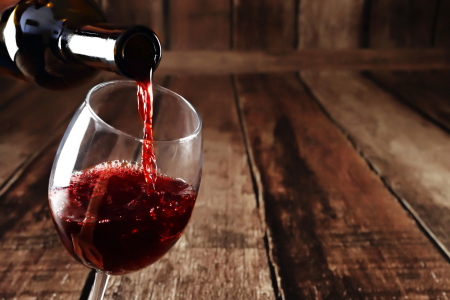Did you know that the global wine market is set to reach $434.6 billion by 2027? Many people are now investing in fine wine for portfolio diversification and benefits stemming from low correlation to traditional markets. If you want to learn more about how to value wine and identify investment-grade wines, keep reading.
Why Invest in Wine?
Wine is a great investment due to its ability to increase in value over the years, and upon selling, you can make a significant profit. Investing in quality wines, however, used to require a high amount of capital. With Vint, investors are now able to access the best wines in the world for under $100 a share. The wine market is also expanding, but it is not quick money; in fact, investing in wine is a long-term investment like real estate. In recent years, fine wine has returned over 9% annually and has a low volatility over the long term. Always remember, wine gets better with age, and so do your investments.
What are Investment-Grade Wines?
In some cases, investment wines can be considered Veblen goods due to the associated luxury with high-value wine.
The demand for these wines increases as the price of wine increases, rather than demand going down as the price goes up.
The most common types of investment-grade wine consist of Bordeaux, Burgundy, Napa Cabs, and favorites from Europe and other places worldwide.
To make money from a wine investment, there are two options:
- Hold your shares for 3-7 years as the wine increases its value
- Secondary trading where investors can trade shares (coming to the Vint platform in 2022)
How Do You Value Wine?
When it comes to ranking a fine wine, several factors go into the process. When looking at buying wine, you should look for the following:
- Age-worthiness
- Scarcity
- Critics rankings
- Region
- Producer
The above factors are the strongest indicators of high-value wine that are sure to be good investments.
Where Do You Buy Wines From
If you are interested in purchasing investment wines, there are several options. The best course of action is to work with platforms like Vint because they can work with well-vetted and licensed wineries, merchants, auction houses, wholesalers, and exchanges.
Other options for buying wine include auctions like Sotheby's Wine, brokers who work as the middleman between buyers and sellers, wine stock exchanges, or wine stores.
Once purchased, your investment wine should be safely transported to a storage facility that will help your wine age properly. If your wine is not stored properly, it can lose its flavor and, subsequently, its value.
You should store your wine in a climate and humidity-controlled space that stays at 55 degrees Fahrenheit with about 60% humidity. The wine should also be away from light and vibration. If those requirements are not possible in your home, you can always use a professional storage facility.
Age Your Investments Like a High-Value Wine
We hope you enjoyed this investor guide on how to value wine from the types to invest in, to key-value indicators and where to buy from.
If you are interested in investing and are curious about the world of value wine, contact us today to get started!


